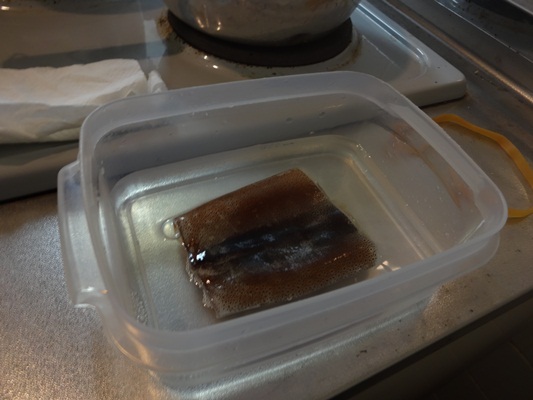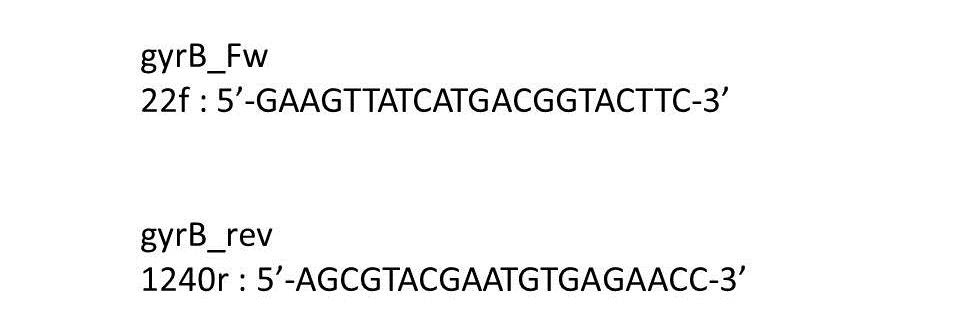Team:Tokyo-NoKoGen/ikalux
From 2013.igem.org
(Difference between revisions)
| (11 intermediate revisions not shown) | |||
| Line 351: | Line 351: | ||
float: left; | float: left; | ||
width:490px; | width:490px; | ||
| - | height: | + | height:7200px; |
background: url("https://static.igem.org/mediawiki/2013/0/05/Header_index_kiso9.png") 0px -250px no-repeat ; | background: url("https://static.igem.org/mediawiki/2013/0/05/Header_index_kiso9.png") 0px -250px no-repeat ; | ||
} | } | ||
| Line 382: | Line 382: | ||
float: left; | float: left; | ||
width:820px; | width:820px; | ||
| - | height: | + | height:7200px; |
background: url("https://static.igem.org/mediawiki/2013/0/05/Header_index_kiso9.png") -490px -250px no-repeat; | background: url("https://static.igem.org/mediawiki/2013/0/05/Header_index_kiso9.png") -490px -250px no-repeat; | ||
| Line 390: | Line 390: | ||
float: left; | float: left; | ||
width: 100px; | width: 100px; | ||
| - | height: | + | height: 7200px; |
background: url("https://static.igem.org/mediawiki/2013/0/05/Header_index_kiso9.png") -1310px -250px no-repeat; | background: url("https://static.igem.org/mediawiki/2013/0/05/Header_index_kiso9.png") -1310px -250px no-repeat; | ||
} | } | ||
| Line 398: | Line 398: | ||
width: 1410px; | width: 1410px; | ||
height: 700px; | height: 700px; | ||
| - | background: url("https://static.igem.org/mediawiki/2013/0/05/Header_index_kiso9.png") 0px - | + | background: url("https://static.igem.org/mediawiki/2013/0/05/Header_index_kiso9.png") 0px -14300px no-repeat; |
} | } | ||
| Line 507: | Line 507: | ||
<div id="index"> | <div id="index"> | ||
| + | |||
| + | |||
| + | |||
| + | |||
| + | |||
| + | |||
| + | |||
| + | |||
| + | |||
<h1 id="index_title">Human practice</h1> | <h1 id="index_title">Human practice</h1> | ||
<ul id="contents"> | <ul id="contents"> | ||
| - | + | ||
<a href="https://2013.igem.org/Team:Tokyo-NoKoGen/labosafety"><li><strong>How to work safely in the laboratory</strong></li></a> | <a href="https://2013.igem.org/Team:Tokyo-NoKoGen/labosafety"><li><strong>How to work safely in the laboratory</strong></li></a> | ||
<a href="https://2013.igem.org/Team:Tokyo-NoKoGen/questionnaire"><li><strong>Questionnaire on Synthetic Biology</strong></li></a> | <a href="https://2013.igem.org/Team:Tokyo-NoKoGen/questionnaire"><li><strong>Questionnaire on Synthetic Biology</strong></li></a> | ||
| Line 529: | Line 538: | ||
<BR> | <BR> | ||
| - | + | <p align=center><font size=4> Please have a look at our video first</font></p> | |
| - | + | ||
<BR><p align=center><iframe width="420" height="315" src="//www.youtube.com/embed/QoZZVeJH6IA" frameborder="0" allowfullscreen></iframe></p> | <BR><p align=center><iframe width="420" height="315" src="//www.youtube.com/embed/QoZZVeJH6IA" frameborder="0" allowfullscreen></iframe></p> | ||
| Line 537: | Line 546: | ||
<BR> | <BR> | ||
<BR> | <BR> | ||
| + | <font size=4>We hope you enjoyed our video! The video shows you how it is easy to culture a luminescent bacteria at home, a very simple experiment with only a need to buy a fresh squid from a nearby supermarket. The boy and a girl shown in the video are 1st year students at our university, who have no experience in doing laboratory experiments. Even they can do it for the first time - why don't you also try?</font> | ||
<BR> | <BR> | ||
| + | <font size=4>ビデオは楽しんでいただけたでしょうか?このビデオでは、光るバクテリアを家で簡単に培養出来るということ、スーパーで新鮮なイカを買ってくるだけで出来てしまうということを伝えたく、作りました。ビデオに登場する男の子と女の子は大学1年生で、まだ複雑な実験を経験したことがありません。あなたもぜひ家で培養してみませんか?</font> | ||
<BR> | <BR> | ||
| - | <img src=https://static.igem.org/mediawiki/2013/5/5a/I01.jpg width=300> | + | <BR> |
| + | <BR> | ||
| + | <p align=center><font size=6> Steps in preparing ika culture</p></font> | ||
| + | <BR> | ||
| + | <BR> | ||
| + | <font size=4>As shown in the video, the steps needed for making a squid is very simple. The photos below will help you remember how the steps were taken. First you buy a fresh ika, then take the inside away and cut it into an appropriate size. Put that piece into a container filled with 3% NaCl. Leave this ika for 1 to 2 weeks at 4℃, you will soon start to see luminescent "spots" on the surface of ika - luminescent bacteria!An agarose gel can be easily made from boiling the rest of ika for 3 to 5 minutes, and mix it well with agar.</font> | ||
| + | <BR> | ||
| + | <font size=4>ビデオでもお見せした通り、イカを用意するのはとても簡単です。下の写真は、ビデオでお見せした内容の復習です。まず、近所のスーパーで新鮮なイカを買ってきます。そのイカをちょうど良い大きさに切りだします。切り出した断片を3% NaClに浸し、4℃で1週間から2週間程度培養します。すると、イカの表面に光る”斑点”が見えてきますが、これが発光バクテリアです!寒天培地もとても簡単に用意できます。余ったイカをお鍋で3分から5分にて、寒天と混ぜるだけです。 | ||
| + | <BR><img src=https://static.igem.org/mediawiki/2013/5/5a/I01.jpg width=300> | ||
<img src=https://static.igem.org/mediawiki/2013/d/de/I02.jpg width=300> | <img src=https://static.igem.org/mediawiki/2013/d/de/I02.jpg width=300> | ||
<img src=https://static.igem.org/mediawiki/2013/b/b7/I03.jpg width=300> | <img src=https://static.igem.org/mediawiki/2013/b/b7/I03.jpg width=300> | ||
| Line 550: | Line 569: | ||
<BR> | <BR> | ||
<BR> | <BR> | ||
| + | <BR> | ||
| + | <BR> | ||
| + | <BR> | ||
| + | <p align=center><font size=6> Obtain the luminescent bacteria</p></font> | ||
| + | <BR> | ||
| + | <BR> | ||
| + | <BR>We were not satisfied with only finding the luminescent bacteria, but we also wanted to know what it is. Therefore we decided to culture the colony on the agar plate to get a single colony. Can you see it? | ||
| + | <BR>私達は発光バクテリアを見つけるだけでは満足が出来ませんでした。そこで、バクテリアの正体を探るために、寒天培地でバクテリアを培養してみました。見えるかな? | ||
| + | <img src=https://static.igem.org/mediawiki/2013/8/86/Lumi.jpg> | ||
| + | <BR> | ||
| + | <BR> | ||
| + | <p align=center><font size=6> Cloning the bacterium gene</p></font> | ||
| + | <BR> | ||
| + | <BR> | ||
| + | <BR>For cloning the bacterium, we designed the following primer. We ran PCR and confirmed the bands by gel electrophoresis. The cloning successfully worked! | ||
| + | <BR>バクテリアの遺伝子をクローニングするために、次のプライマーを設計しました。PCRを行ってバンドを電気泳動で確認したらバンドを得ることが出来ました。 | ||
| + | <img src=https://static.igem.org/mediawiki/2013/e/e7/Primers.jpg> | ||
<BR> | <BR> | ||
<img src=https://static.igem.org/mediawiki/2013/f/f4/Questionnaire.jpg> | <img src=https://static.igem.org/mediawiki/2013/f/f4/Questionnaire.jpg> | ||
| + | <BR> | ||
| + | <BR> | ||
| + | <p align=center><font size=6> Sequence the cloned gene</p></font> | ||
| + | <BR> | ||
| + | <BR>We hurried and sequenced the cloned gene fragment. The sequencing data is shown below: | ||
| + | <BR>バンドが見えたので私達は慌ててシーケンス解析を行いました。その結果が次の通りです: | ||
| + | <BR> | ||
| + | <img src=https://static.igem.org/mediawiki/2013/5/55/Sequence.jpg> | ||
| + | <BR> | ||
| + | <BR>Using the obtained sequence, we made a blast analysis against a gene database (http://blast.ncbi.nlm.nih.gov/) to find out what bacterium we obtained on the surface of ika. As shown in the image below, we found that the gene is derived from Photobacterium Phosphoreum! | ||
| + | <BR>得られた遺伝子が一体なんのバクテリア由来であるのかを調べるために、データベース(http://blast.ncbi.nlm.nih.gov/)に照らし合わせてみました。以下の図がその結果になりますが、Photobacterium Phosphoreumのバクテリアを得ることに成功しました! | ||
| + | <img src=https://static.igem.org/mediawiki/2013/4/45/Blast.jpg> | ||
| + | <BR> | ||
| + | <BR> | ||
| + | <BR>When we hear the work "bacteria" or "cloning" it might scare some people away because it sounds very difficult. But as you can see, they are very very simple and are an experiment anyone can do. We hope that you wil also challenge yourself in culturing an ika lux! | ||
| + | <BR>このように、「バクテリア」や「クローニング」と聞くととても難しいことのように思えますが、実はとても簡単です。だれでも出来るシンプルな実験です。あなたもぜひ一度ika luxを培養してみませんか? | ||
| + | <BR> | ||
| + | <BR> | ||
| + | |||
| + | <p align=center><img src="https://static.igem.org/mediawiki/2013/3/39/Ikaika.jpg"></p> | ||
Latest revision as of 01:26, 28 September 2013
Human practice
- How to work safely in the laboratory
- Questionnaire on Synthetic Biology
- Do It Yourself -IkaLux-
- Team interactions: iGEM JAPAN

DO IT YOURSELF
Simple Experiment to do at home
Please have a look at our video first
We hope you enjoyed our video! The video shows you how it is easy to culture a luminescent bacteria at home, a very simple experiment with only a need to buy a fresh squid from a nearby supermarket. The boy and a girl shown in the video are 1st year students at our university, who have no experience in doing laboratory experiments. Even they can do it for the first time - why don't you also try?
ビデオは楽しんでいただけたでしょうか?このビデオでは、光るバクテリアを家で簡単に培養出来るということ、スーパーで新鮮なイカを買ってくるだけで出来てしまうということを伝えたく、作りました。ビデオに登場する男の子と女の子は大学1年生で、まだ複雑な実験を経験したことがありません。あなたもぜひ家で培養してみませんか?
Steps in preparing ika culture
As shown in the video, the steps needed for making a squid is very simple. The photos below will help you remember how the steps were taken. First you buy a fresh ika, then take the inside away and cut it into an appropriate size. Put that piece into a container filled with 3% NaCl. Leave this ika for 1 to 2 weeks at 4℃, you will soon start to see luminescent "spots" on the surface of ika - luminescent bacteria!An agarose gel can be easily made from boiling the rest of ika for 3 to 5 minutes, and mix it well with agar.
ビデオでもお見せした通り、イカを用意するのはとても簡単です。下の写真は、ビデオでお見せした内容の復習です。まず、近所のスーパーで新鮮なイカを買ってきます。そのイカをちょうど良い大きさに切りだします。切り出した断片を3% NaClに浸し、4℃で1週間から2週間程度培養します。すると、イカの表面に光る”斑点”が見えてきますが、これが発光バクテリアです!寒天培地もとても簡単に用意できます。余ったイカをお鍋で3分から5分にて、寒天と混ぜるだけです。








Obtain the luminescent bacteria
We were not satisfied with only finding the luminescent bacteria, but we also wanted to know what it is. Therefore we decided to culture the colony on the agar plate to get a single colony. Can you see it?
私達は発光バクテリアを見つけるだけでは満足が出来ませんでした。そこで、バクテリアの正体を探るために、寒天培地でバクテリアを培養してみました。見えるかな?

Cloning the bacterium gene
For cloning the bacterium, we designed the following primer. We ran PCR and confirmed the bands by gel electrophoresis. The cloning successfully worked!
バクテリアの遺伝子をクローニングするために、次のプライマーを設計しました。PCRを行ってバンドを電気泳動で確認したらバンドを得ることが出来ました。


Sequence the cloned gene
We hurried and sequenced the cloned gene fragment. The sequencing data is shown below:
バンドが見えたので私達は慌ててシーケンス解析を行いました。その結果が次の通りです:

Using the obtained sequence, we made a blast analysis against a gene database (http://blast.ncbi.nlm.nih.gov/) to find out what bacterium we obtained on the surface of ika. As shown in the image below, we found that the gene is derived from Photobacterium Phosphoreum!
得られた遺伝子が一体なんのバクテリア由来であるのかを調べるために、データベース(http://blast.ncbi.nlm.nih.gov/)に照らし合わせてみました。以下の図がその結果になりますが、Photobacterium Phosphoreumのバクテリアを得ることに成功しました!

When we hear the work "bacteria" or "cloning" it might scare some people away because it sounds very difficult. But as you can see, they are very very simple and are an experiment anyone can do. We hope that you wil also challenge yourself in culturing an ika lux!
このように、「バクテリア」や「クローニング」と聞くととても難しいことのように思えますが、実はとても簡単です。だれでも出来るシンプルな実験です。あなたもぜひ一度ika luxを培養してみませんか?

 "
"










